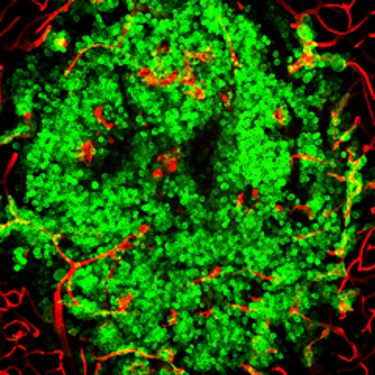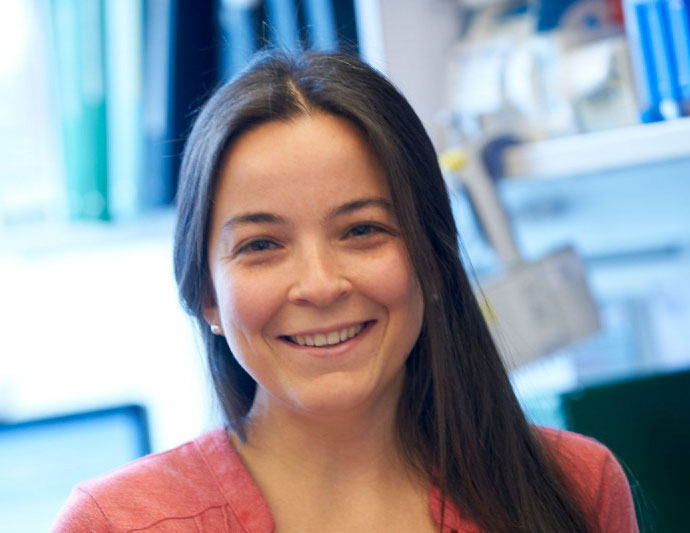Latest News
Research
Massey scientists join international effort to streamline brain metastasis research
Jun 8, 2020

The laboratory of VCU Massey Cancer Center scientist Paula D. Bos, Ph.D., has joined forces with 18 other international laboratories to develop the first collaborative platform to streamline research into brain metastases. The effort, called the Brain Metastasis Cell Lines Panel (BrMPanel), has already compiled more than 60 different cell lines related to brain metastasis research in an effort to reduce research duplication and speed up therapeutic advancements.
BrMPanel is coordinated by the laboratory of Manuel Valiente at the Spanish National Cancer Research Centre (CNIO), and details about the project were published today in the journal Cancer Research. In addition to Bos’ lab, labs from the United States, Spain, Germany, China, Ireland, Israel, United Kingdom, Norway and Switzerland are already participating, with open invitations to other colleagues.
 Paula Bos, Ph.D.
Paula Bos, Ph.D.
“Modeling the processes involved in brain metastases is very difficult and often undertaken by solitary labs in support of specific research objectives,” says Bos, who is a member of the Cancer Molecular Genetics research program at Massey and an assistant professor in the Department of Pathology at VCU School of Medicine. “Not only are we pooling our resources, we’re also providing guidance for other researchers on how to avoid known pitfalls and develop the best possible models for their experiments.”
Between 10-30 percent of all cancer patients develop brain metastases, especially from breast, lung and skin tumors, and cases are on the rise. With support from METAvivor and the Susan G. Komen Foundation, Bos has developed and characterized multiple cell lines that have been added to the project.
The information is available through the digital platform to other scientists engaged in similar research. In addition, information about how to use the biological materials, what therapies have been tried and results from associated clinical studies are also provided to facilitate collaborators’ research.
“We are striving to help a population of patients who have very few treatment options and are in desperate need of effective therapies. I’m hopeful that our collaboration will benefit everyone’s research efforts, attract more scientists and ultimately lead to new breakthroughs and treatments,” says Bos.
Written by: John Wallace
Related News
Research
Robert A. Winn Clinical Investigator Pathway Program welcomes fourth cohort of medical student awardeesJul 8, 2025
Research
“We’re aiming for a cure.” Massey and VIMM researchers achieve potential breakthrough in brain cancer treatmentJun 24, 2025
Research
Massey researchers discover new genetic target that could shape the future of liver cancer treatmentJun 23, 2025

Get access to new, innovative care
Treatments in clinical trials may be more effective or have fewer side effects than the treatments that are currently available. With more than 200 studies for multiple types of cancers and cancer prevention, Massey supports a wide array of clinical trials.

Find a provider
Massey supports hundreds of top cancer specialists serving the needs of our patients. Massey’s medical team provides a wealth of expertise in cancer diagnosis, treatment, prevention and symptom management.
